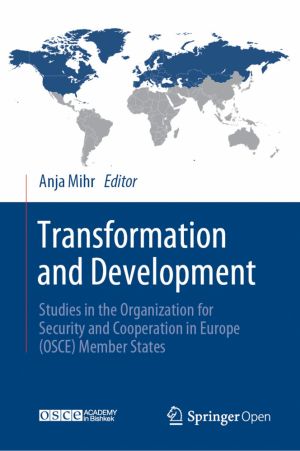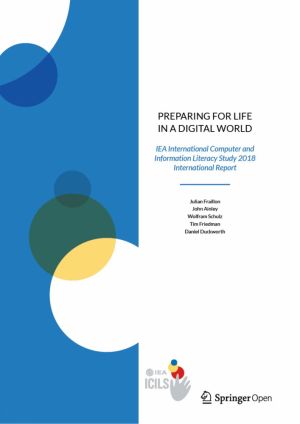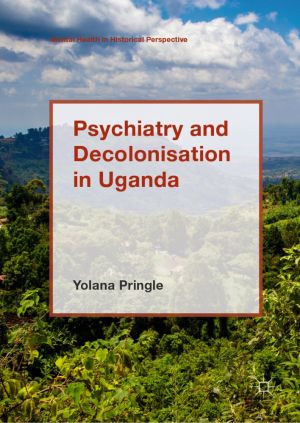Psychiatry and Decolonisation in Uganda
by Yolana Pringle
DescriptionDetailsHashtagsReport an issue







Book Description
This book investigates psychiatry in Uganda during the years of decolonisation. It examines the challenges facing a new generation of psychiatrists as they took over responsibility for psychiatry at the end of empire, and explores the ways psychiatric practices were tied to shifting political and development priorities, periods of instability, and a broader context of transnational and international exchange. At its heart is a question that has concerned psychiatrists globally since the mid-twentieth century: how to bridge the social and cultural gap between psychiatry and its patients? Bringing together archival research with oral histories, Yolana Pringle traces how this question came to dominate both national and international discussions on mental health care reform, including at the World Health Organization, and helped spur a culture of experimentation and creativity globally. As Pringle shows, however, the history of psychiatry during the years of decolonisation remained one of marginality, and ultimately, in the context of war and violence, the decolonisation of psychiatry was incomplete.This open book is licensed under a Creative Commons License (CC BY). You can download Psychiatry and Decolonisation in Uganda ebook for free in PDF format (3.3 MB).
Book Details
Title
Psychiatry and Decolonisation in Uganda
Subject
History
Publisher
Palgrave Macmillan
Published
2019
Pages
265
Edition
1
Language
English
ISBN13
9781137600943
ISBN10
1137600942
ISBN13 Digital
9781137600950
ISBN10 Digital
1137600950
PDF Size
3.3 MB
License

Related Books

This book features various studies on democratization, transformation, political and economic development, and security issues in the Organization for Security and Cooperation in Europe (OSCE) geographical region and beyond. Written by experts and academics in the fields of human rights, security, transformation and development, particularly in pos...

Higher education in Europe and beyond faces a series of major challenges. The economic crisis has accelerated expectations of an increased role in addressing economic and societal challenges while, at the same time, putting pressure on available finances. Broader trends such as shifting student demographics and expectations, globalisation and mobil...

This book examines the interrelationship of national policy, teacher effectiveness, and student outcomes with a specific emphasis on educational equity. Using data from the IEA's Trends in International Mathematics and Science Study (TIMSS) conducted between 1995 and 2015, it investigates grade four and grade eight data to assess trends in key...

This open access edited volume offers an analysis of the entangled histories of education and development in twentieth-century Africa. It deals with the plurality of actors that competed and collaborated to formulate educational and developmental paradigms and projects: debating their utility and purpose, pondering their necessity and risk, and eva...

This book summarizes the key findings from the second cycle of IEA's International Computer and Information Literacy Study (ICILS), conducted in 2018. ICILS seeks to establish how well schools around the globe are responding to the need to provide young people with the necessary digital participatory competencies. Effective use of information ...

From 1928 to 1972, the Alberta Sexual Sterilization Act, Canada's lengthiest eugenic policy, shaped social discourses and medical practice in the province. Sterilization programs - particularly involuntary sterilization programs - were responding both nationally and internationally to social anxieties produced by the perceived connection betwe...

